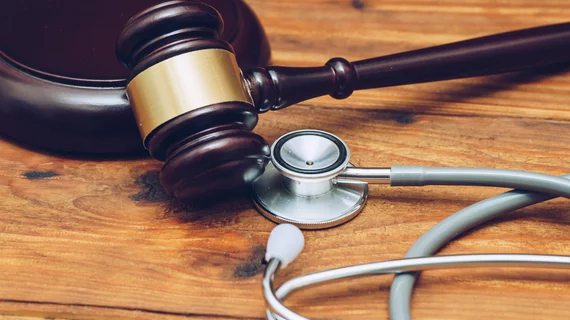The U.S. Supreme Court struck down an attempt by the Department of Health and Human Services (HHS) to cut payments to hospital drug programs.
The court case stems from HHS’ 2018 final rule establishing separate reimbursement rates for hospitals that serve low-income or rural populations through the 340B program and all other hospitals. The 340B program is a drug pricing program that aims to lower drug costs provided through Medicaid with a rebate agreement where manufacturers pay rebates to state Medicaid programs for “covered outpatient drugs,” according to HHS. The agency also set pricing the same way in 2019.
The final rule was challenged by the American Hospital Association and other healthcare groups in federal court, and the case eventually made its way to the Supreme Court. The court ruled HHS must not vary the reimbursement rates for different groups of hospitals. The payment cuts for 2018 and 2019 would have totaled $1.6 billion annually.
Part of the issue is that HHS never conducted a survey of hospitals’ acquisition costs for drugs since 2006, when HHS was given two options to set reimbursement rates. Those options included conducting a survey of hospitals’ acquisition costs—that is, the amount that hospitals pay to acquire the prescription drugs––or, if a survey has not been conducted, then setting reimbursement rates based on “the average price” charged by manufacturers for the drug, as calculated and adjusted by the Secretary of HHS.
“The question is whether the statute affords HHS discretion to vary the reimbursement rates for that one group of hospitals when, as here, HHS has not conducted the required survey of hospitals’ acquisition costs. The answer is no,” stated the Supreme Court opinion, delivered by Justice Brett Kavanaugh.
The AHA, Association of American Medical Colleges and America's Essential Hospitals applauded the decision, calling it a win for hospitals.
“We are pleased that the U.S. Supreme Court unanimously agreed with us that the Department of Health and Human Services' outpatient payment cuts to hospitals in the 340B Drug Pricing Program were unlawful,” the groups said in a joint statement. “This decision is a decisive victory for vulnerable communities and the hospitals on which so many patients depend.”
The hospital groups also noted they desired to work with Congress to develop a plan to reimburse hospitals that were affected by 340B cuts while ensuring not create other disadvantages.

